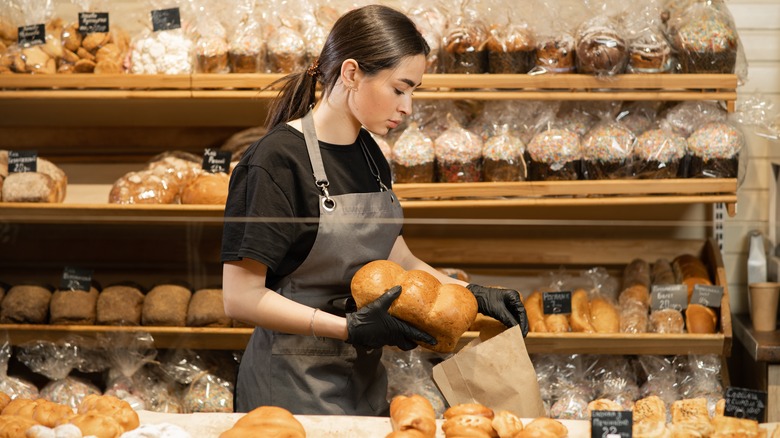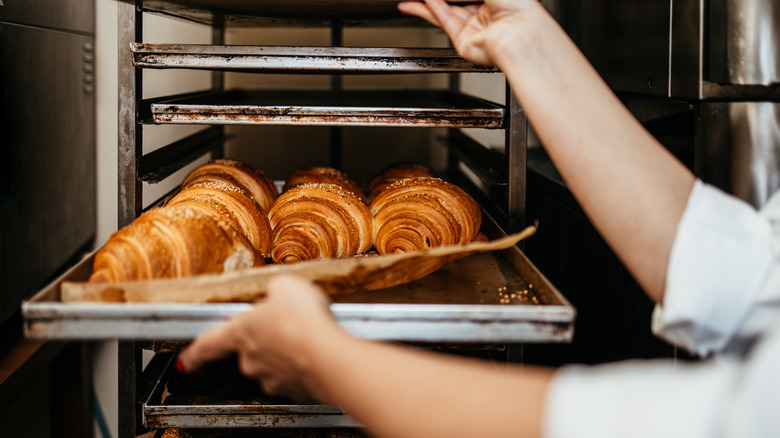The Baking Industry Is Grappling With Significant Worker Shortages
According to the U.S. Bureau of Labor Statistics, the unemployment rate has remained between 3.4% to 3.8% since September 2021, and it doesn't like a sudden uptick is coming any time soon. What would the holiday season be without a trip to your favorite local bakery? Foodies might soon find out. If current labor trends continue, the baking industry will see 53,500 unfilled positions by 2030. It's becoming increasingly apparent that radical industry reform is necessary.
The baking industry isn't just about rolling dough. It also relies on production, engineering, equipment maintenance, shipping, and distribution to maintain daily operations. Communities and businesses nationwide could be affected by the shortage, particularly in the Midwest where 13,4000 bakery industry jobs are estimated to be unfilled by 2030 (12,900 positions are expected to be open in the South, 10,3000 in the West, 10,200 in the Northeast, and 6,600 in the Plains). This harrowing prediction comes from data gathered by research firm ndp/analytics, which collaborated with the American Bakers Association, via Food Business News.
The labor shortage has been infamously rocking various industries nationwide, but it's especially prominent in the bakery sphere. Early start times and high volume make for high turnover, compounded by the fact that positions often remain unfilled for a long time with few applicants — who must be skilled enough at the job to remain an asset once hired.
Thinking outside the bread box
Bakery owners have had to start getting creative with the hiring practices to keep businesses staffed. A large demographic of the folks currently filling bakery industry positions are reaching retirement age and exiting the workforce. Maryland-based Mandala Pies has reached out to interns from nearby culinary school programs, reports local news outlet WMDT. As owner Caitlin LaComb tells the network, the bakery's staff ranges from 15 years old to 80. Other threats facing the baking industry include supply chain issues and general regulatory relief post-pandemic and in the face of skyrocketing inflation. The ABA is scheduled to meet with policymakers at a Bakers Fly-In and Policy Summit on November 14 to determine possible solutions.
At the annual ABA meeting earlier this year in March, Yaron Schwartz (director for the U.S. at the Tent Partnership for Refugees) suggested that the baking industry turn its attention toward employing the large population of legal refugees flooding the country. Considering the current state of political unrest and climate-related disasters overseas, this population can reasonably be anticipated to increase. More than 25 countries are experiencing active war, political instability, domestic terrorism, or territorial disputes. According to the American Immigration Council, the number of forcibly displaced people around the world has risen from 42.7 million at the end of 2012 to 89.3 million at the end of 2021. By recruiting people from this population, argues Schwartz, the bakery industry could replenish its workforce and provide meaningful career opportunities.

